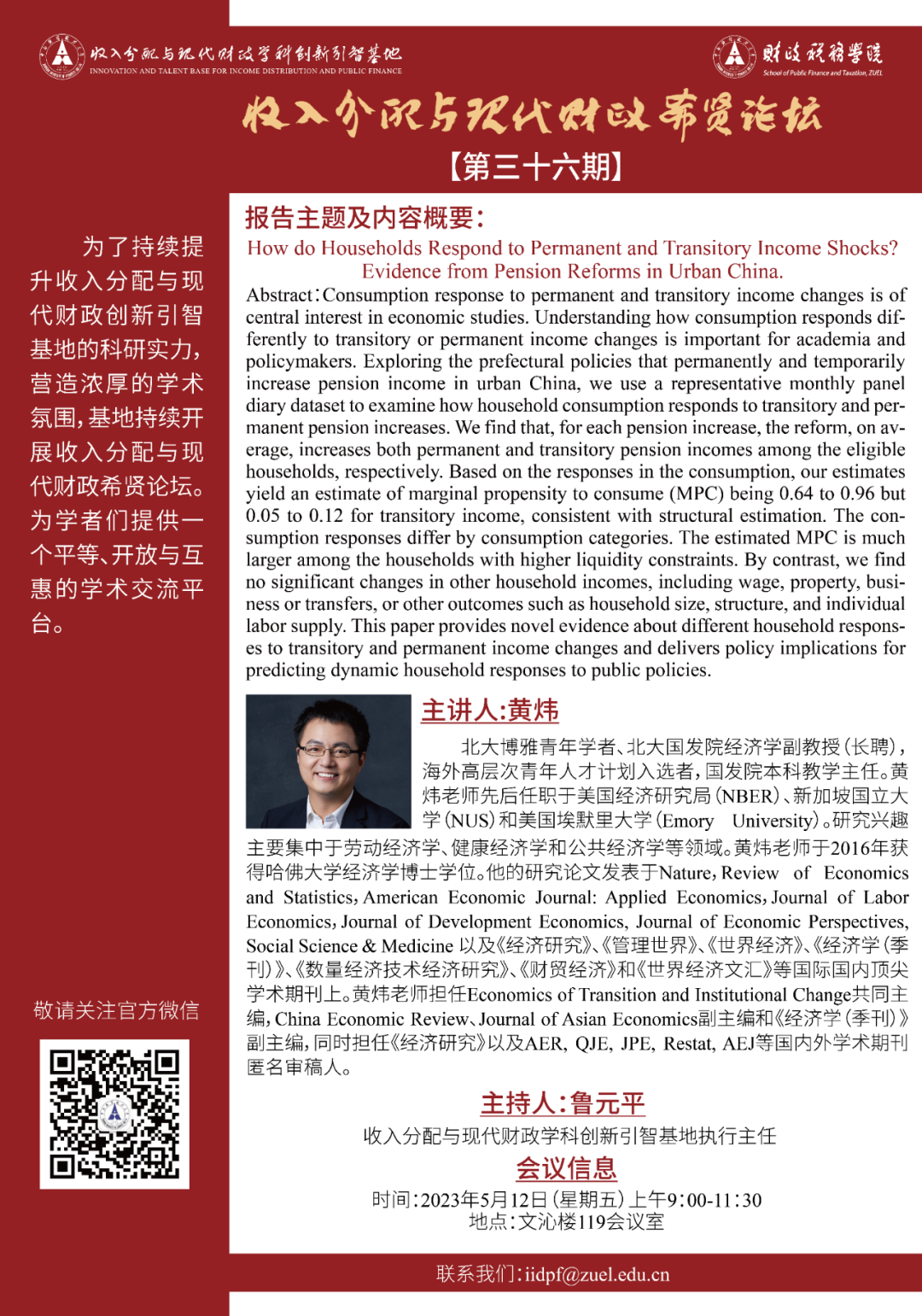
Topic: How do Households Respond to Permanent and Transitory Income Shocks? Evidence from Pension Reforms in Urban China.
Consumption response to permanent and transitory income changes is of central interest in economic studies.Understanding how consumption responds differently to transitory or permanent income changes is important for academia and policymakers. Exploring the prefectural policies that permanently and temporarily increase pension income in urban China we use a representative monthly pane diary dataset to examine how household consumption responds to transitory and permanent pension increases.We find that, for each pension increasethe reform, on average, increases both permanent and transitory pension incomes among the eligible households, respectively. Based on the responses in the consumption our estimates yield an estimate ofmarginal propensity toconsume(MPCbeing0.64to 0.96 but 0.05 to 0.12 for transitory incomeconsistent with structural estimation.The consumption responses differ byconsumption categories.The estimated MPC is much larger among the households with higher liquidity constraints. By contrast we find no significant changes in other household incomesincluding wageproperty, business or transfers.or other outcomes such as household sizestructureand individual labor supply. This paper provides novel evidence about different household responses to transitory and permanent income changes and delivers policy implications for predicting dynamic household responses to public policies.
Speaker Profile: Huang Wei
Dr. Huang is a Boya Young Scholar at Peking University, an Associate Professor of Economics (Long Term Appointment) at the National School of Development of Peking University, an Overseas High-Level Young Talent Programme entrant, and the Director of Undergraduate Teaching at the National School of Development of Peking University.Dr. Wei Huang has served in the National Bureau of Economic Research, the National University of Singapore and Emory University. His research interests are mainly in the areas of labour economics, health economics and public economics.He received his PhD in Economics from Harvard University in 2016. His research findings has been published on international renowned journals like Nature Review of Economics and Statistics, American Economic Journal: Applied Economics、Journal of Labor Economics, Journal of Development Economics、Journal of Economic Perspectives Social Science & Medicine and Economic Research Journal, Management World, Journal of Management World, China Economic Quarterly, Journal of Quantitative & Technological Economics, Finance & Trade Economics and World Economic Papers. Dr. Huang is the co-editor-in-chief of Economics of Transition and Institutional Change, the associate editor of China Economic Review Journal of Asian Economics and the associate editor of China Economic Quarterly. He is also an anonymous reviewer for the Economic Research Journal and other domestic and international academic journals such as AER, OJEJPE, Restat and AEJ.
Time: 12 May 2023 (Friday) 9:00 - 11:30
Moderator: Lu Yuanping (Executive Director of IIDPF)
Venue: Conference Room 119, Wenqin Building
